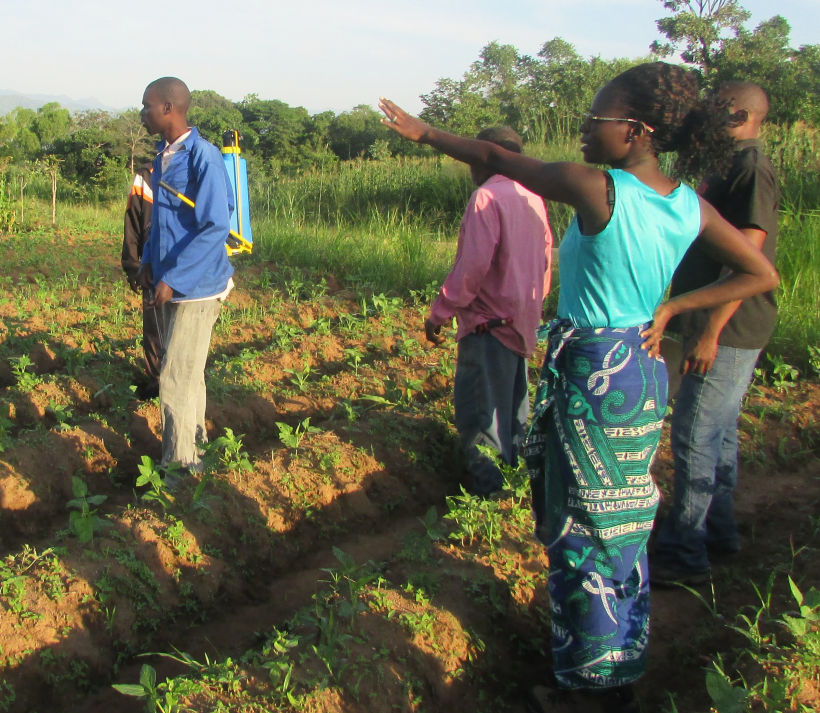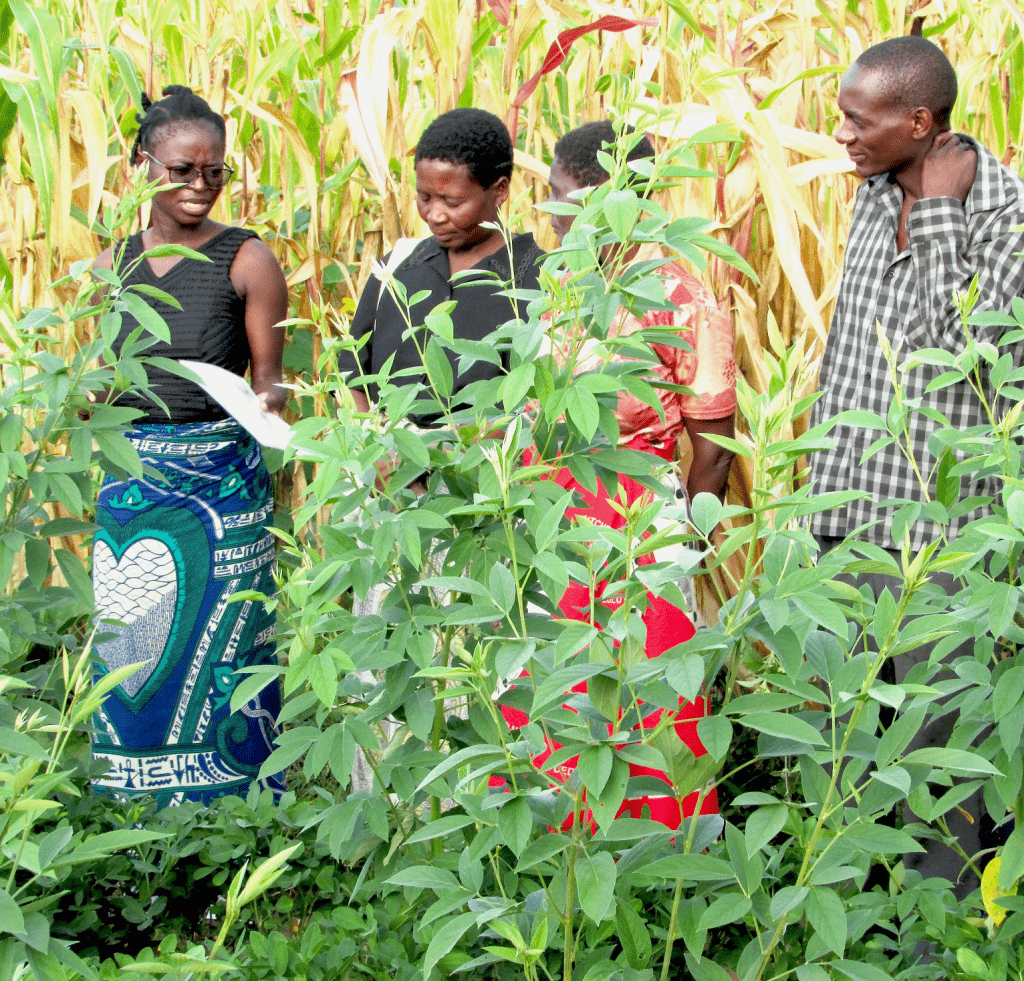
2019 One Planet Laureate Candidate, Dr. Trust Kasambala, on a field visit.
Maize farming is essential for food security, income generation, and a source of employment for nearly 208 million people in sub-Saharan Africa, being the main staple crop. But for the past six years, farmers have watched in horror and devastation as their farms are destroyed by the invasive crop pest, fall armyworm (FAW).
“For most smallholder farmers, their farms are their primary source of food and income. If the rains fail, there will be no food, if soil fertility declines, crop yield will go down, and if pests and diseases attacked, crop disaster could strike”, says Dr. Trust Kasambala, a Crop Protection Scientist from Malawi.
Since its detection in 2016, FAW has spread into 44 countries in Africa, with a devastating impact on yield and farmers’ income. It is reported that FAW can feed on over 80 crops, including sorghum, rice, millet, sugarcane, vegetable crops, and cotton, but it prefers maize. With millions of hectares of maize crops infected, the threat to food security is dire. CABI estimates that the pests could cause maize yield losses ranging from 8.3 to 20.6m tonnes per annum, in the absence of any control methods, in just 12 of Africa’s maize-producing countries.
“FAW perpetuates food insecurity and poverty among smallholder farmers. The pest attacks all stages of maize crops. Severe infestation to the maize cob means no harvest to the smallholder farmer. Infested maize cobs are also poorly developed and therefore not marketable either as fresh green maize or dried grains,” states Trust.
As global interventions call for policymakers, governments, private sectors, and research organizations to rethink and reorient African food systems, developing local innovations and technologies could play a far more significant role in helping the continent fight against FAW and achieve sustainable development.
Harnessing the experience and expertise of local talents like Trust can advance inclusive agricultural transformation on the continent. She is conscious of the high dependence on agrochemicals such as inorganic insecticides, which are hazardous and kill beneficial organisms like birds and affect farmers’ health. These factors drove her to find environment-friendly ways to deal with insects and pests.
Trust’s research aims to evaluate the resistance of commonly grown maize varieties to FAW and identify natural enemies of the FAW that can be used in the biological control of the pest. She wants to develop eco-friendly pesticides to control harmful pests and reduce the effects of chemicals and has already done some exciting work in that area.
She recently won a USD 100,000 research grant from the European Union (EU) to support her research on FAW bioecology in Malawi. The project will evaluate the resistance of commonly grown maize varieties to FAW, identify natural enemies that can be used in the biological control of the pest, and find a viable alternative to synthetic pesticides to control FAW.

Moreover, in 2016, she led the first project in Malawi to identify local species of entomopathogenic fungi to improve pest management. Her research produced commercially affordable fungal-based biopesticides that are easily accessible to rural farmers. She emphasizes that fungal-based biopesticides are easier to use and do not require complicated handling equipment. Therefore, improving resilient farming systems. In addition, she has further intensified her efforts to combat pest diseases by leading a team of researchers in Malawi that identified several pesticide plants that effectively control insects and pests in stored beans.
“I have always had an affinity for biology. Although, after spending time observing the workings of a clinic, on my grandfather’s advice, I knew nursing was not for me as I originally planned. But I cherish the time and effort I put in the lab and educating farmers on best crop management practices”, she states.
Trust’s focus on sustainable pest control is underpinned by her awareness of what she terms as “the big focus on increasing yields through plant breeding, improving soil fertility, and using synthetic fertilizers, making the whole process resilient; and increasing farmers’ vulnerability.”
Also close to her heart is attention to the gender component of pest control.
“In Malawi, women provide 70% of farm labor, and men are involved in spraying chemicals. This means that both men and women are vulnerable to ailments associated with the chemicals. Men from the direct contact and women as they store them in their living spaces or use the containers for household purposes,” Trust underscores.
AWARD is working to develop the capacity and increase African researchers’ visibility and influence agricultural policies and priority setting best equipped to overcome obstacles to food security in the continent. The AWARD Fellowships have equipped 661scientists with the confidence and ability to lead research teams, develop innovations and participate in crucial decision making.
Through the One Planet Fellowship, in which Trust is an inaugural Laureate Candidate, AWARD is building homegrown talents capable of developing inclusive local solutions for smallholders to adapt to a changing climate.
Further, the African researchers gain new skills and confidence to lead transformative innovations through tailored capacity development interventions. For Trust, the courses made a massive difference while writing her EU-winning proposal. She became more self-aware and improved her science writing skills.
She also mentions that the leadership training has made communicating to farmers about natural products to manage pests easier. She believes that the Fellowship will strengthen her research skills and provide networking opportunities to realize her dream.
“I want to become an expert in tropical insect science focusing on biological pest management and conservation of biodiversity in agricultural systems,” she says.
